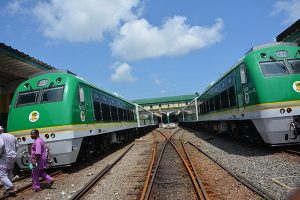Africa: Lagos Summit Weighs Ai Ambitions Against Africa’s Tech Infrastructure Gap

Nigeria is hosting one of Africa’s biggest tech gatherings on Tuesday, with debates ranging from Wolof-speaking chatbots to medical algorithms. The ambition is to harness artificial intelligence to transform economies – but patchy internet, unreliable electricity and low investment remain major obstacles.
In Lagos, the African Digital Economy and Inclusion Conference is bringing together policymakers, business leaders, academics and other stakeholders to explore how AI can drive growth while making sure no one is left behind.
The two-day event will examine ways to combine private innovation with public policy.
With the theme AI and the African Digital Economy: Leaving No One Behind, organisers say they want to “address systemic inequalities” in digital access, participation and adopting new technologies across the continent.
Discussions include using AI and big data for economic growth, digital identity systems for cross-border trade, and gender and youth inclusion in the digital workforce.
Why the African continent has a role to play in developing AI
Infrastructure gaps
Both public and private sectors are joining the race for AI on the African continent, whose digital economy is estimated at €155 billion and expected to reach almost €700 by 2050.
Adedayo Oketola, head of the AFDEIC organising committee, said despite rapid fintech, e-commerce, and AI-driven advancements, Africa still faces significant digital infrastructure gaps.
He said many rural Africans lack internet access, with millions still unable to benefit from digital financial services and e-learning platforms.
Other challenges include poor access to electricity and a lack of experts in this field.
“This disparity hinders the equitable distribution of opportunities associated with the digital economy and draws attention to the urgency for targeted interventions,” Oketola said.
Last year, the African Union initiated a “Continental Strategy on AI” for 2030, initially developing regulatory frameworks and creating governance bodies, followed by a launch of projects.
Then, in February, some forty states joined forces to create the African AI Council, aimed at promoting the use of new technologies on the continent.
How technology is helping African countries fight malaria from the skies
Lack of political will
Professor Seydina Ndiaye, an AI specialist in Africa, delays – particularly in subsaharan Africa -stem from a lack of government investment.
“We have quite a few communities starting to use AI, but without government support,” he told RFI.
“The necessary resources are already available: with what we have, we can do quite a lot. It’s just a lack of real will. In speeches, everyone talks about AI, but in reality, structurally, we see very few concrete actions that allow us to move forward in this sector.”
He explains that Africa has fallen behind because of a reliance on the use of foreign technologies.
“This creates a huge gap because we are dependent. The companies that produce in this sector are very behind in relation to what is happening internationally,” he says.
The Kenyan teacher using laptop batteries to power motorbikes
Home-grown innovations
Despite this, some examples of home-grown technology are emerging.
At the private level, there are numerous initiatives around health, education and agriculture, such as DoctorIA algorithms in Rwanda which facilitate medical diagnoses in the absence of specialists.
Generative AI such as AWA in Senegal, speaks Wolof and can even be integrated into WhatsApp.
A pioneer of artificial intelligence in Côte d’Ivoire, Sah Analytics has developed an application that helps Ivorian authorities combat inflation.
“We support the Ivorian Ministry of Commerce with everything related to high-cost-of-living alerts,” its CEO and founder, Yaya Sylla told RFI’s Claire Fages.
“Citizens take photos via an application. The location is automatically geolocated. This helps the Ministry of Commerce staff respond quickly.”
From breast cancer to HIV, how AI is set to revolutionise healthcare
Facial recognition for cows
Fit For Purpose, based in Belgium, has created a subsidiary in Africa, Neotex.ai, to meet a very specific need in Kenya, where authorities required farmers to identify their cows.
Meshia Cédric Oveneke, Belgian-Congolese co-founder of the company told RFI that it took almost a year of research and development to create custom models.
“Now, with a photo, we can register a cow and recognise it at any time, just like with humans. And banks are now much more certain about who they are granting loans to and why, and this is an anti-fraud fight, an assurance to be able to collect the right data and be able to offer the right financial product.”
For Paulin Melatagia, a lecturer and researcher at the University of Yaoundé I in Cameroon, “Africa has a role to play in the development of artificial intelligence to solve African societal problems.”
He says artificial intelligence and its related tools is already helping in agriculture, particularly for predicting locust invasions and floods, using satellite images, for example.
“We can also use artificial intelligence for detecting plant diseases,” he told RFI. “Today, with certain applications deployed on mobile phones, it is enough to scan leaves, and from these images, to detect a certain number of plant diseases.”
He says artificial intelligence can help with “smart watering” for crops, which makes it possible to measure humidity, temperature and light in a field and then trigger the watering system.
Melatagia also insists that Africa’s contribution will be not only beneficial to Africa, but to the world at large, “to develop new concepts, to develop new knowledge so that AI, from a global perspective, can advance.”
By RFI website.



